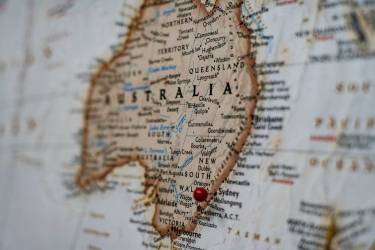-
Australian GDP growth slowed to 0.4% QoQ in Q3 2019
-
Household spending grew just 0.1% QoQ
-
AUDUSD gives back all of yesterday’s gains
Australian dollar is experiencing a wild ride this week. Solid Chinese PMIs and somewhat hawkish RBA caused AUD to strengthen around 1.3% against the US dollar on Monday and Tuesday. However, the Antipodean currency is the G10 top laggard on Wednesday following the release of Q3 GDP data. The report showed economic growth slowed to 0.4% QoQ from upwardly revised 0.6% QoQ in Q2. Growth turned out to be 1.7% on the year-over-year basis with net exports and government spending being the biggest contributors. Household spending is worrying as it increased just 0.1% QoQ. One should keep in mind that RBA delivered three rate cuts since June and said that resulting lower mortgage rates will increase consumer spending over time. As one can see, it has not taken place yet. Australian dollar is trading lower on the back of the data release and AUDUSD is giving up all of yesterday’s gains.
 AUDUSD is pulling back after a failed attempt of breaking above the resistance zone ranging around the 0.6860 handle. Currency is hit by a double-whammy today as it is pressured by disappointing GDP data and renewed trade worries. The first support to watch can be found at the recent low of 0.6750. Source: xStation5
AUDUSD is pulling back after a failed attempt of breaking above the resistance zone ranging around the 0.6860 handle. Currency is hit by a double-whammy today as it is pressured by disappointing GDP data and renewed trade worries. The first support to watch can be found at the recent low of 0.6750. Source: xStation5

Morning Wrap: Global sell-off in the technology sector (13.02.2026)

BREAKING: US jobless claims slightly higher than expected

Market Wrap: UK Stagnation, Tariffs Weigh on Giants, and Crypto Stabilizes

Morning wrap (12.02.2026)


